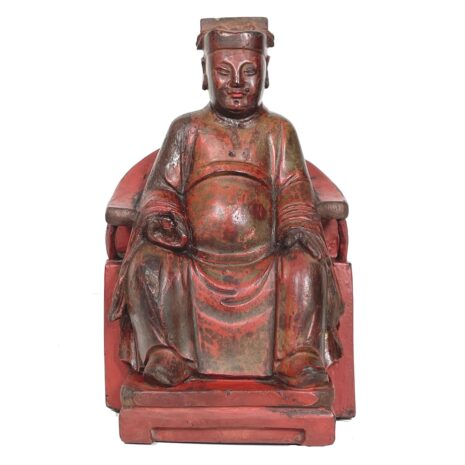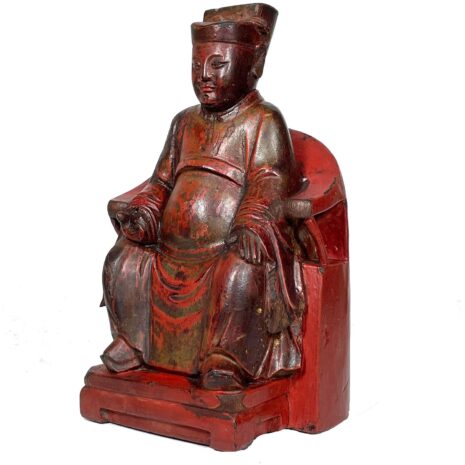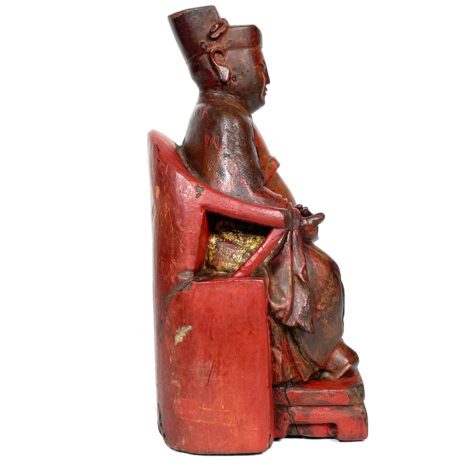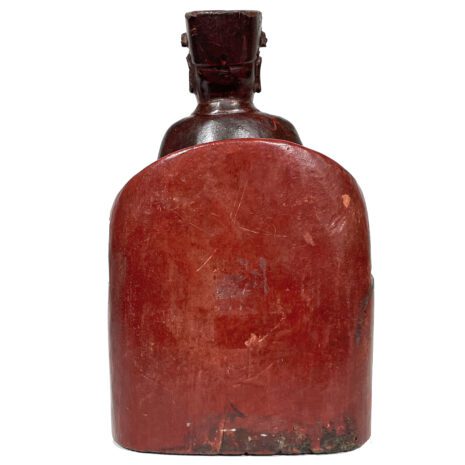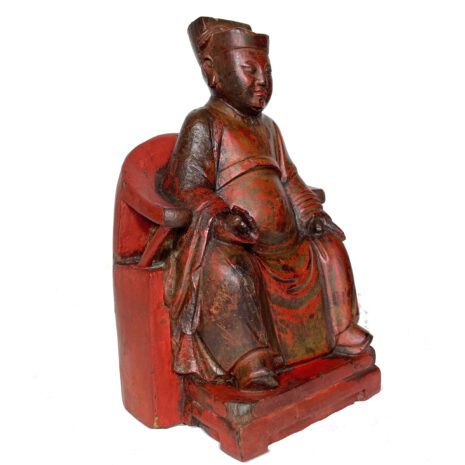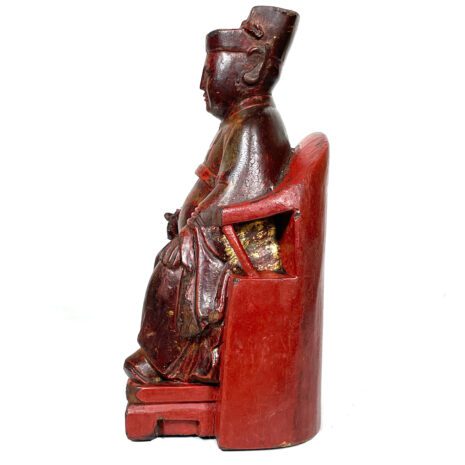Antique Seated Ancestor Official, China (16289)
Original price was: $650.00.$385.00Current price is: $385.00.
H: 7.25” W: 4.625” D: 3.5” | FREE SHIPPING WITHIN CONTINENTAL U.S.
Finely carved ancestor displaying status symbols: official’s attire and hat, horseshoe chair with feet on pedestal. Painted and lacquered front and back in red, traces of gilt, colors of “fu” as a wish for wealth, health and long life, aged from years of use into a great patina.
Description
During the Qing Dynasty Chinese officials were so significant that families often sought to portray an ancestor as an official in carved and painted images. This image reflects many of the common characteristics of ancestor figures discussed by Stuart and Rawaski who write that ancestors were portrayed as officials as if they are deities or rulers to instill awe and devotion in anyone seeing their image. This official sits in a straightforward pose rigidly gesturing with his right hand held up as if holding an object and left placed firmly on his knee, all meant to emphasize his high status and power. His dignified face with eyes gazed somewhat downward and pieced holes that would have held facial hair on his mouth and chin is unidealized and realistic with a slight smile but without any indication of his emotions or personality. Rather, the emphasis is on his traditional officials attire: an unadorned robe around his neck with a belt of office above and below his ample stomach, deeply carved sleeves framing his body, official’s headwear and the horseshoe chair and foot stool meant to reveal his high social status. These were the main functions of this finely carved image and the family’s goal in commissioning it.
The carving is covered overall in warm tones of red covered with lacquer that faded over years of use and there are traces of gilt that originally covered the robe; both are associated with fu as wishes for good fortune and prosperity in the afterlife. Although there are no indications of a rear cavity for a consecration ceremony, it probably was placed on a home altar with other spiritual images, and was certainly a form of ancestor worship and filial piety.
Sources
Jan Stuart and Evelyn Rawaski, Worshiping the Ancestors: Chinese Commemorative Portraits, Palo Alto, Stanford University Press, 2001
Additional information
| Weight | 5 lbs |
|---|---|
| Dimensions | 12 × 9 × 6 in |
| Place of Origin | China |
| Period | Antique, Qing Dynasty |
| Date | 18-19th Century |
| Materials and Technique | Wood |
| Dimensions (inches) | Ht: 7.25” W: 4.625” D: 3.5” |
| Dimensions (metric) | Ht: 18.41cm W: 11.75cm D: 8.89cm |
| Weight | 1 lb 3oz |
| Condition | Excellent, fine patina demonstrating age and use |
| Item Number | 16289BME |
| Shipping Box Size |

